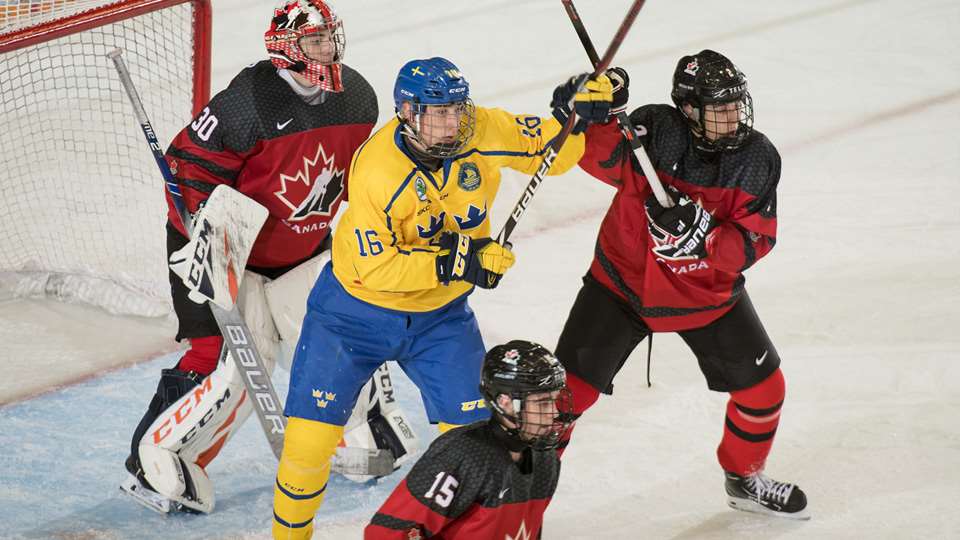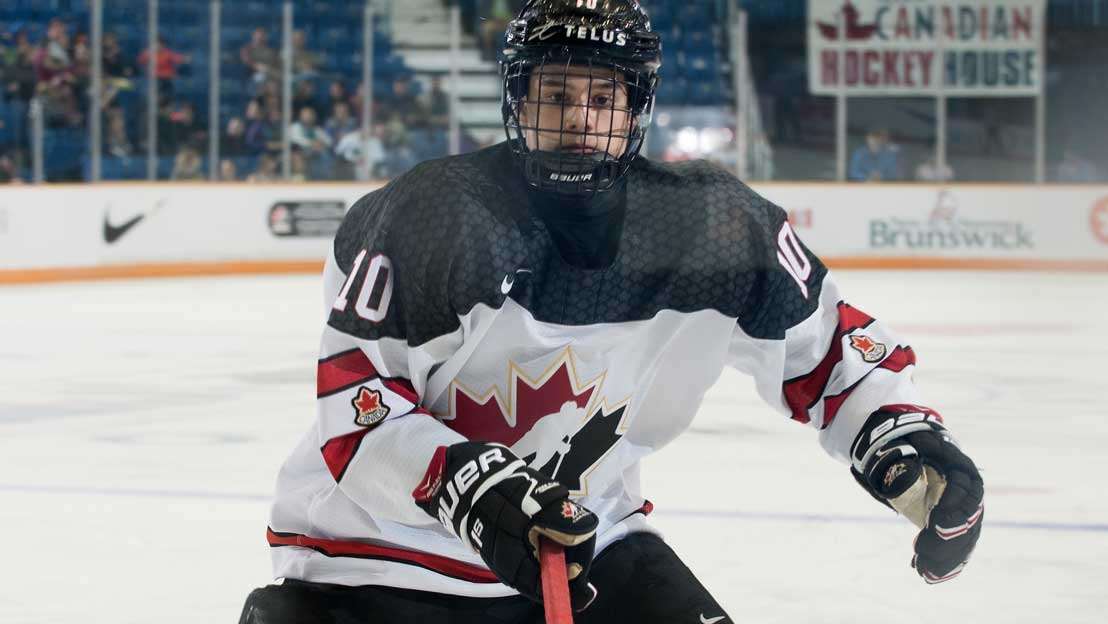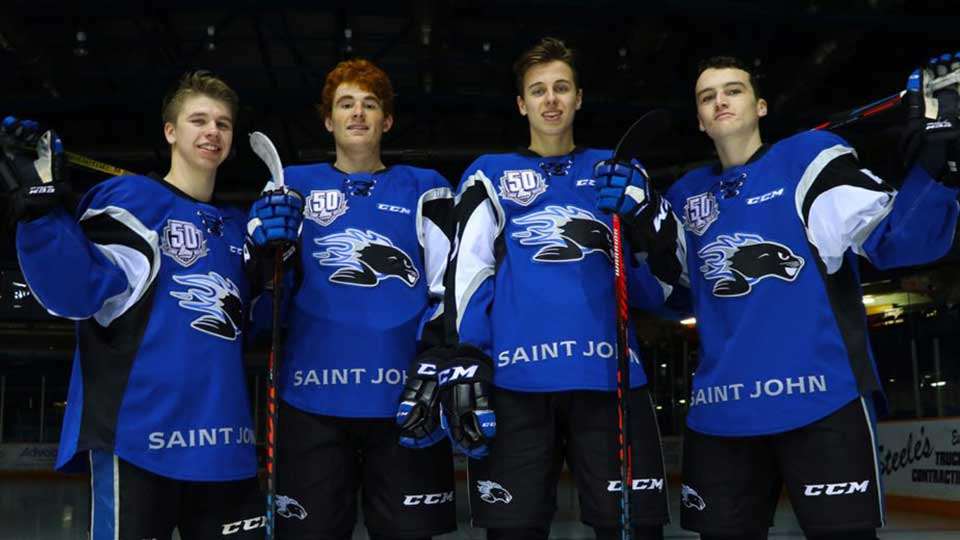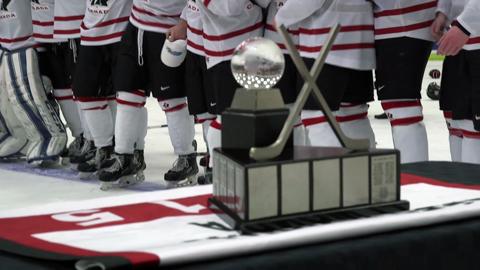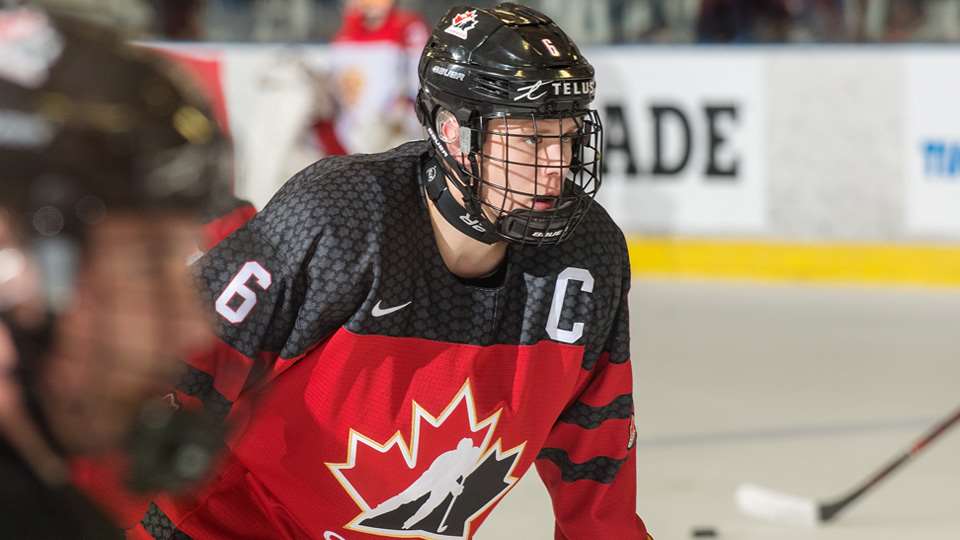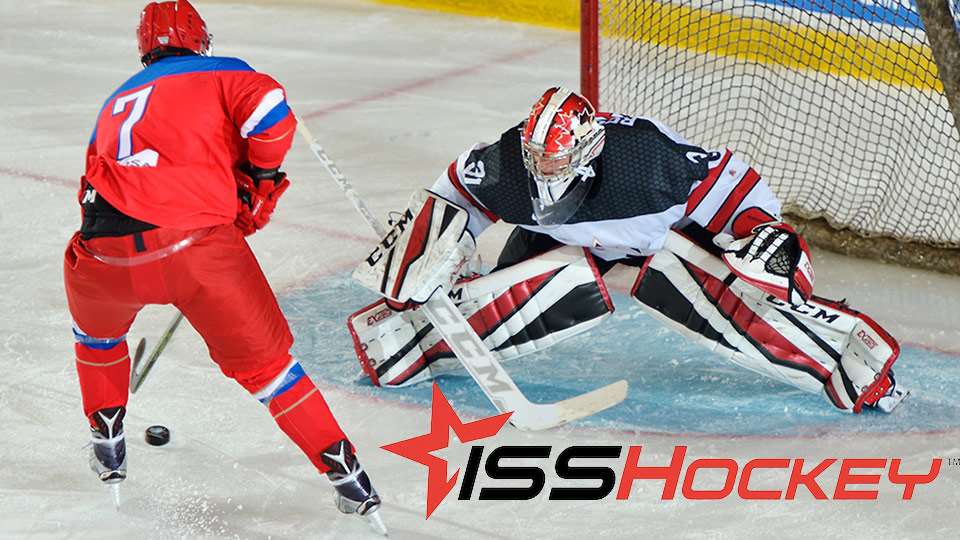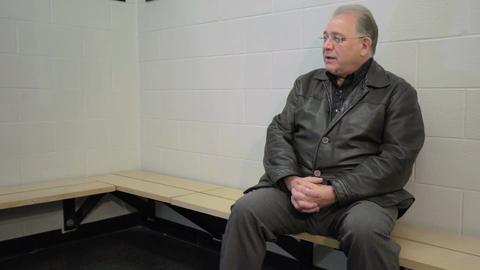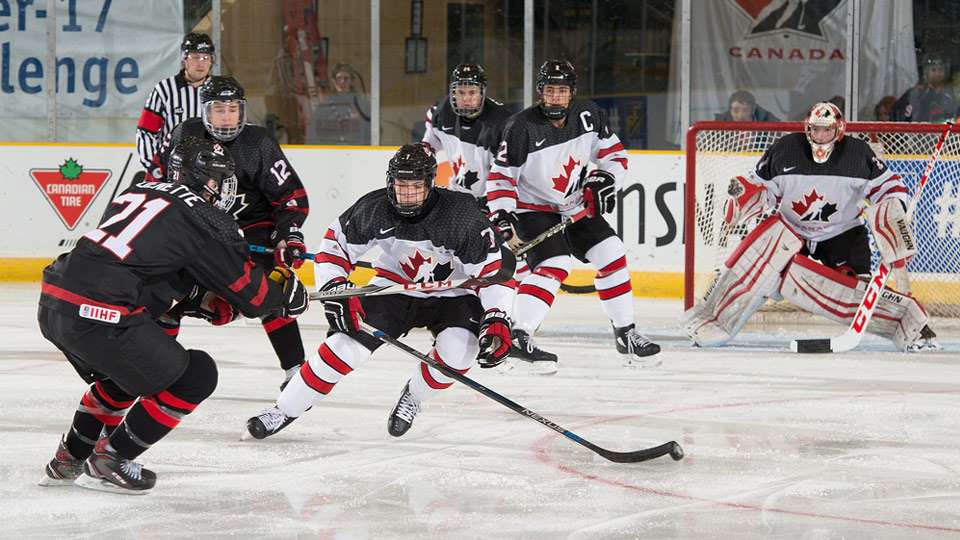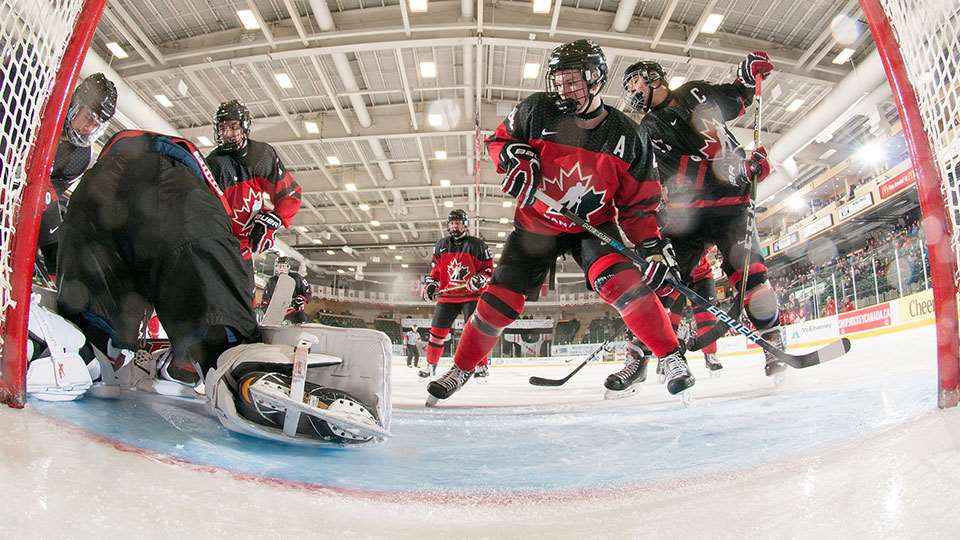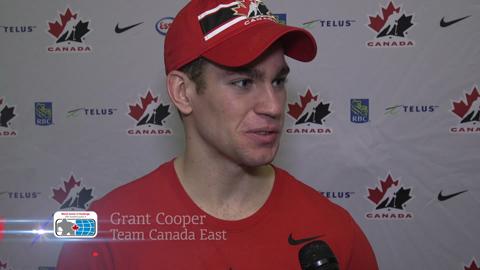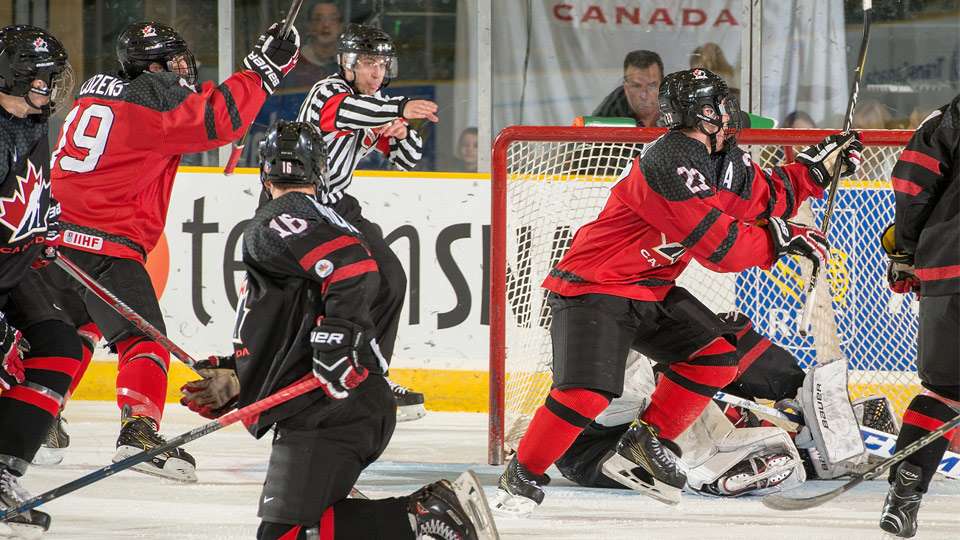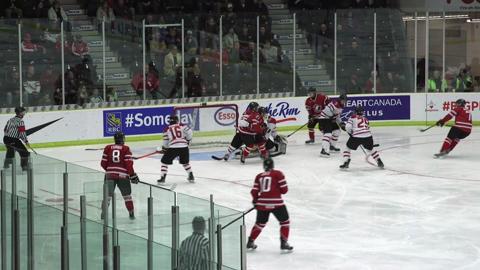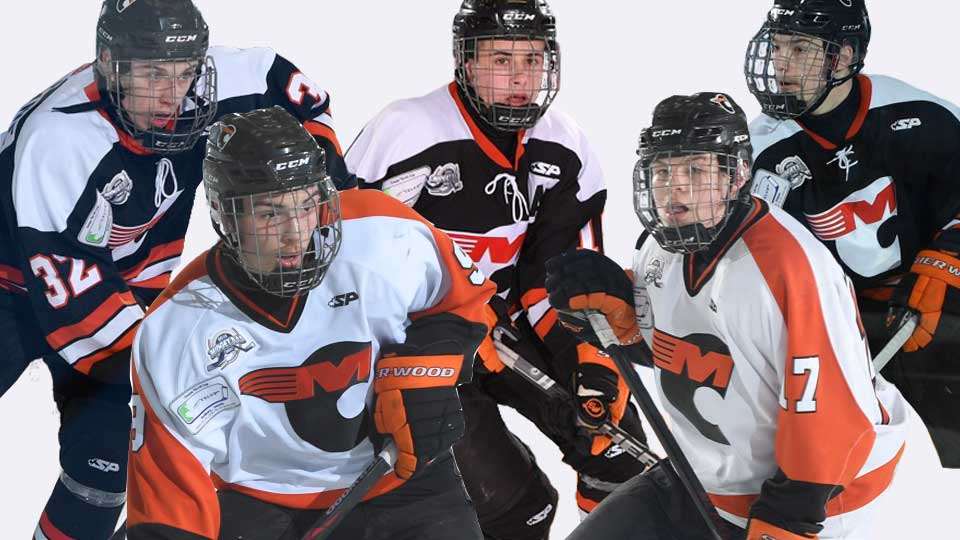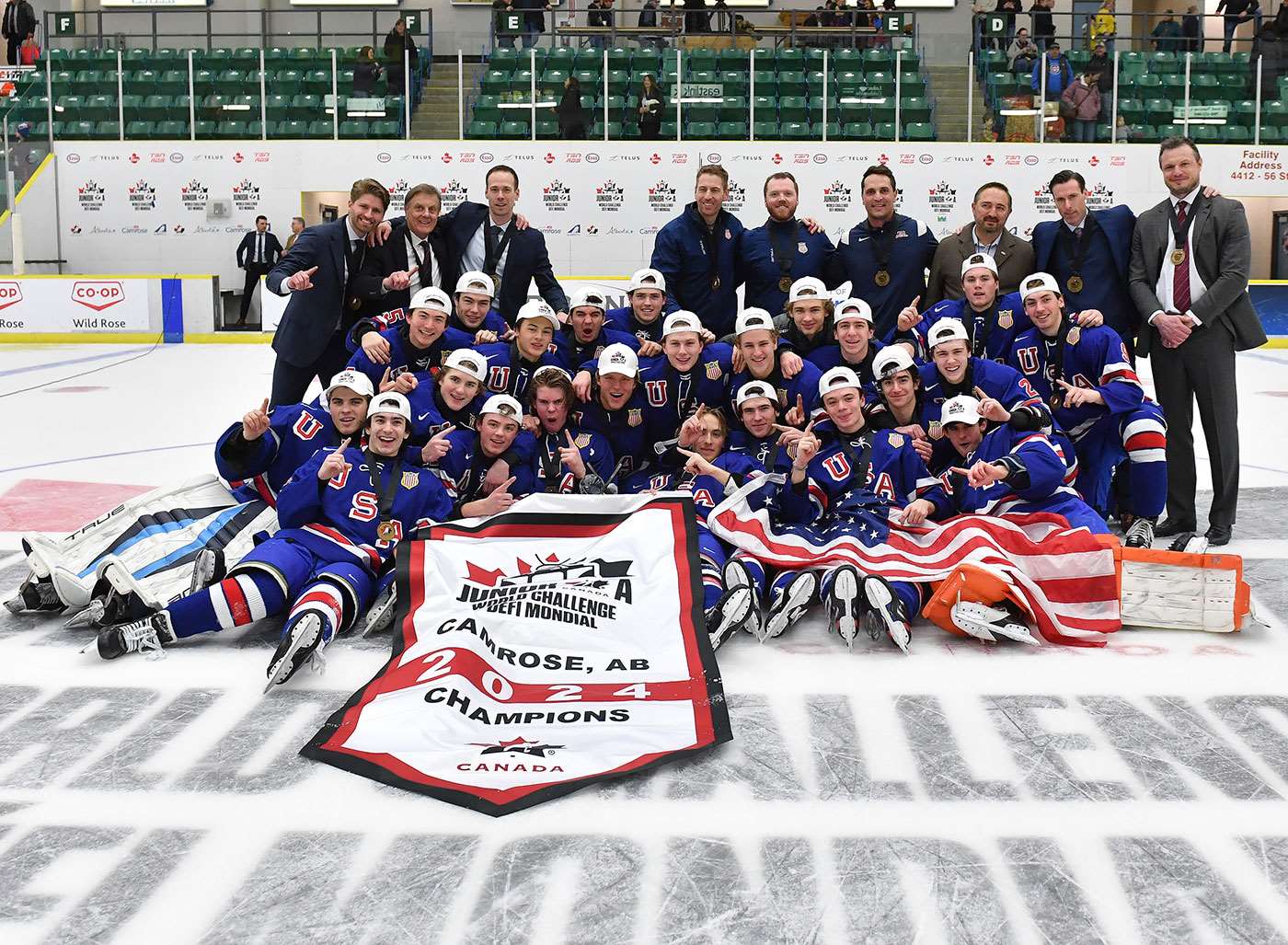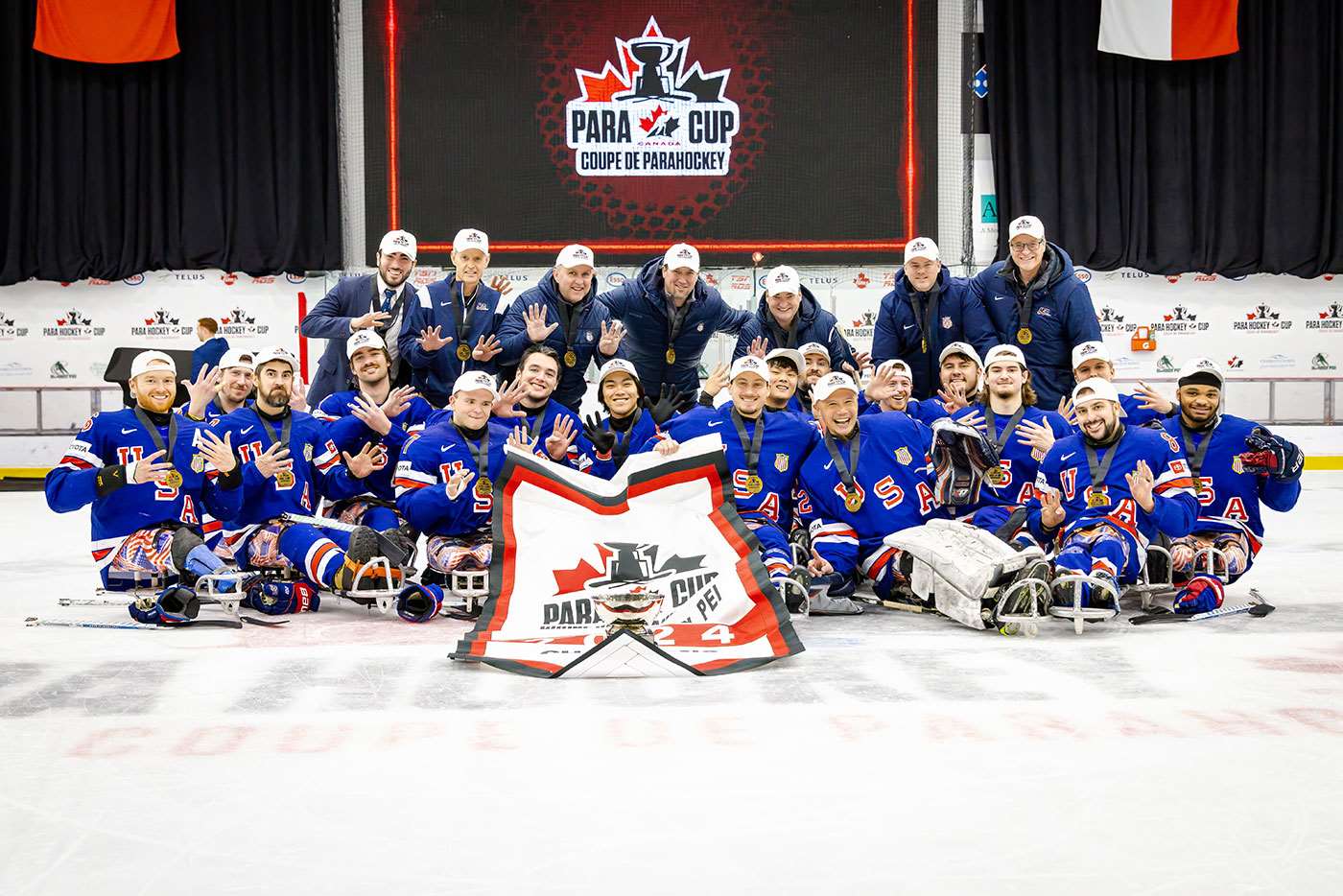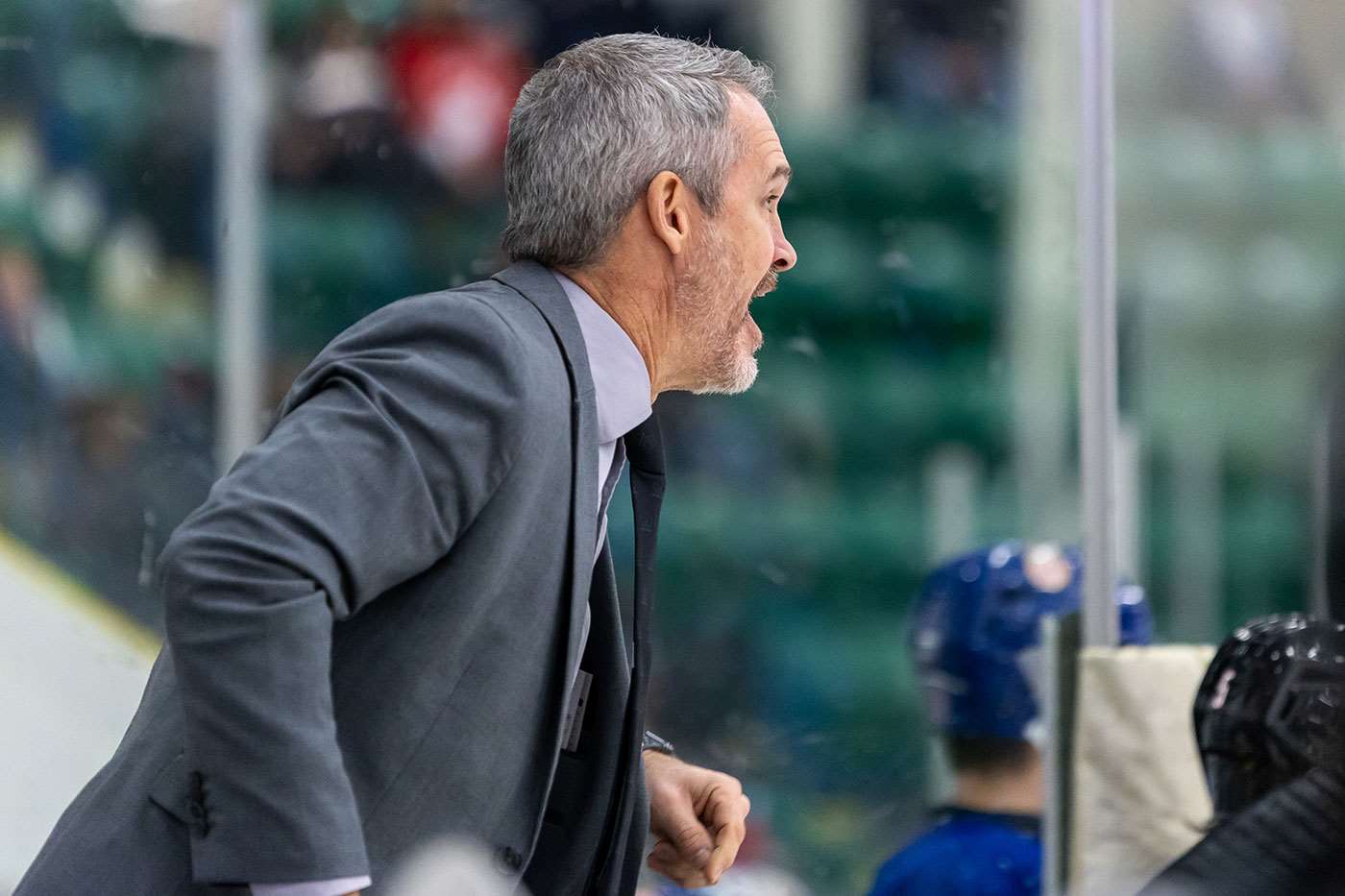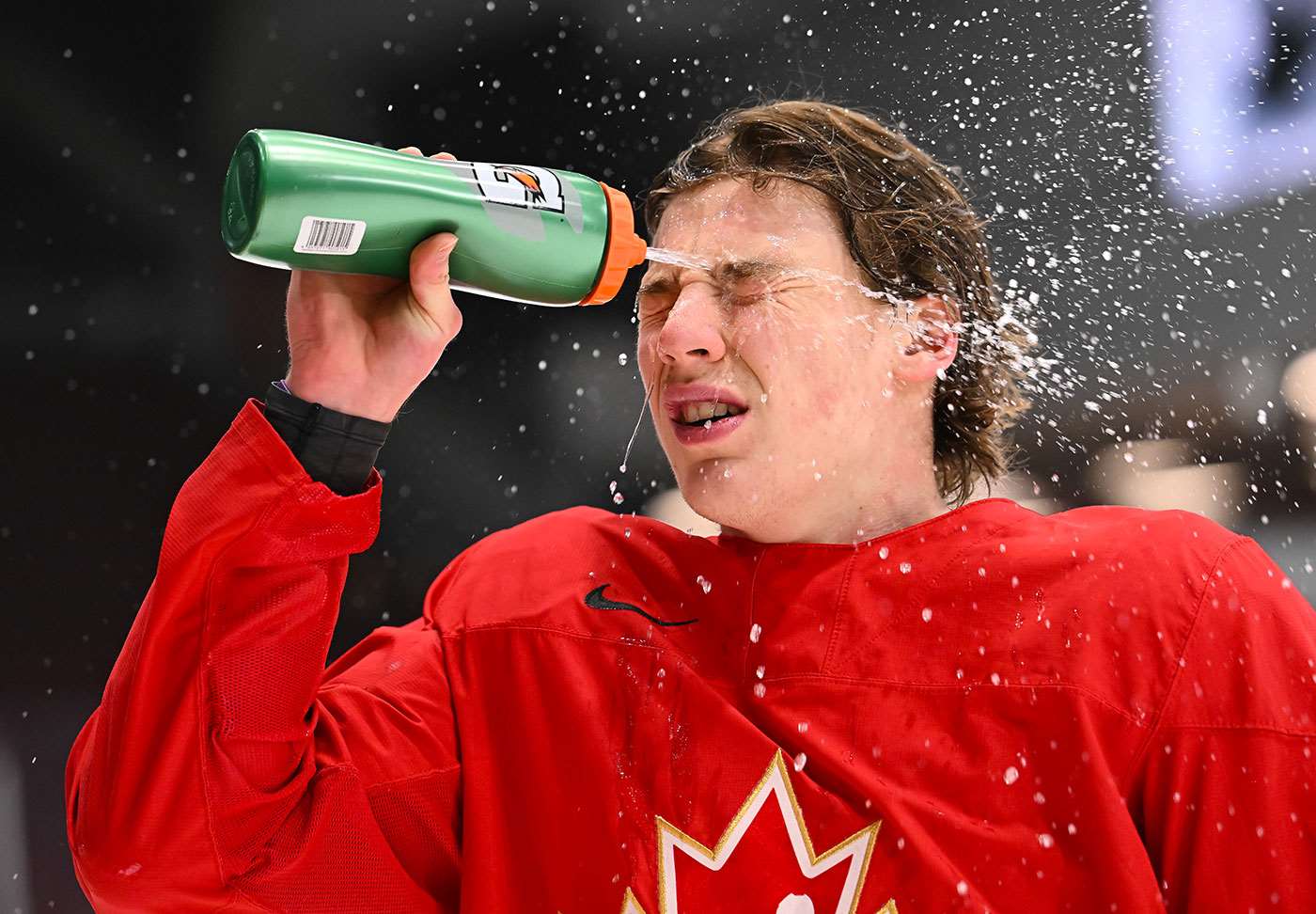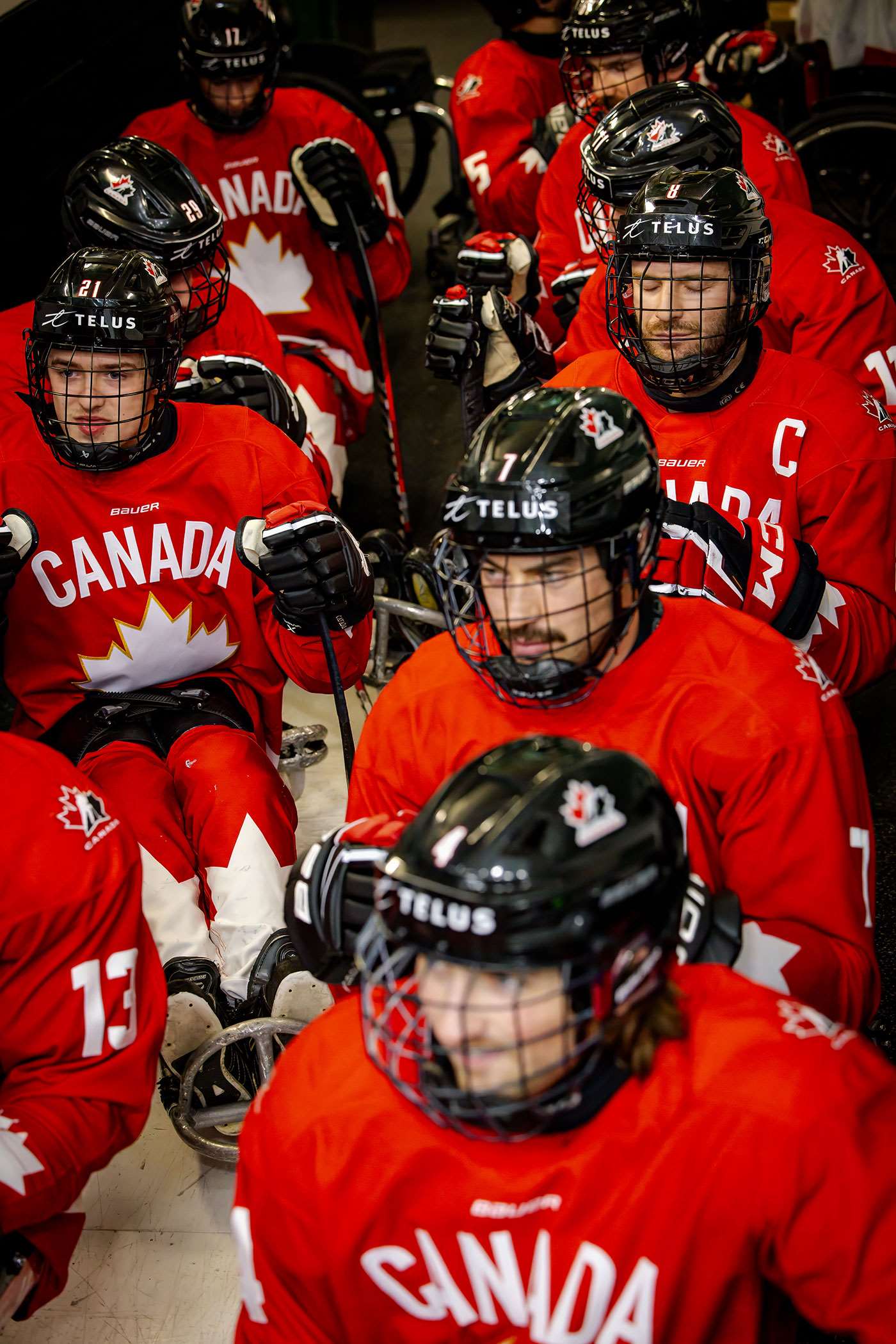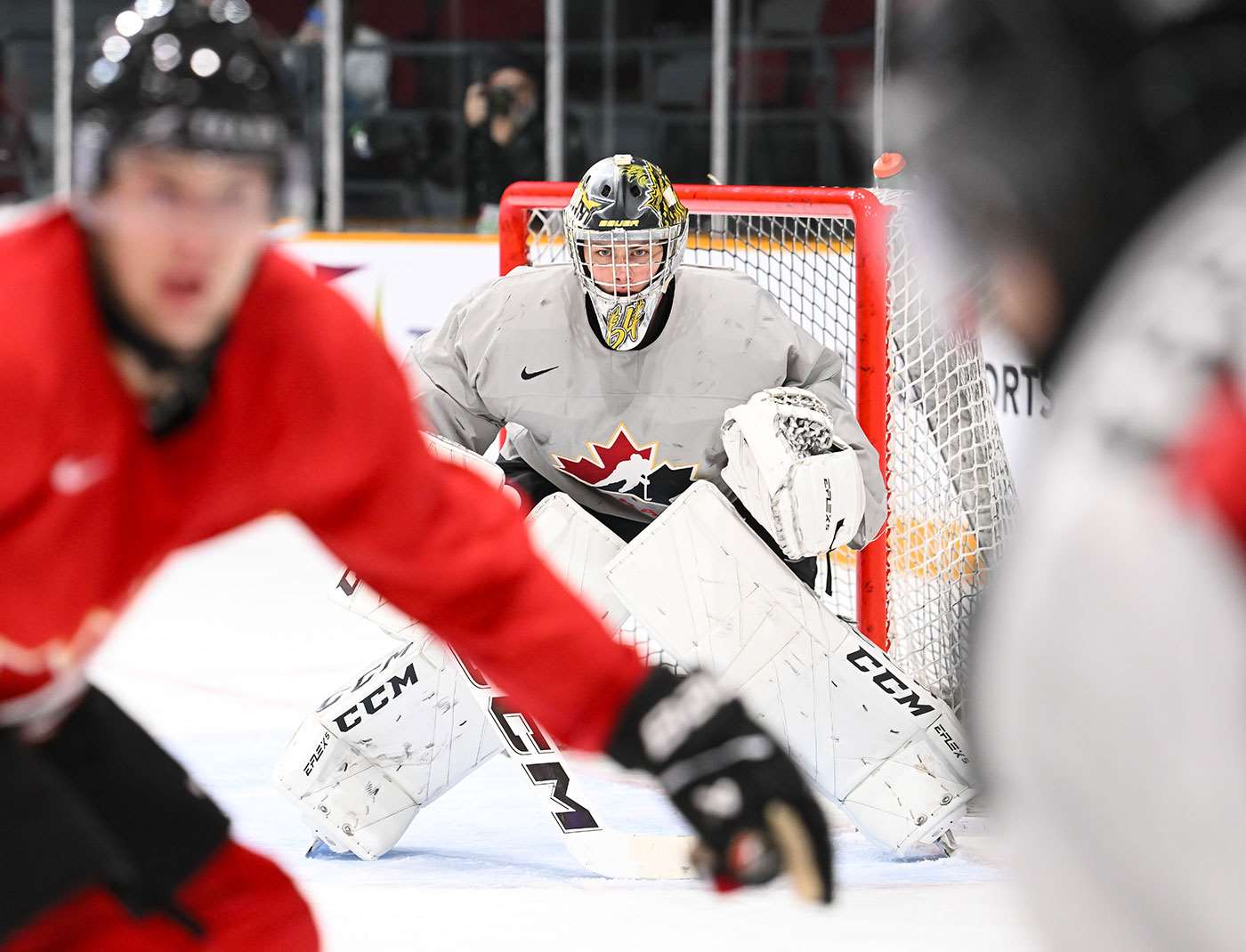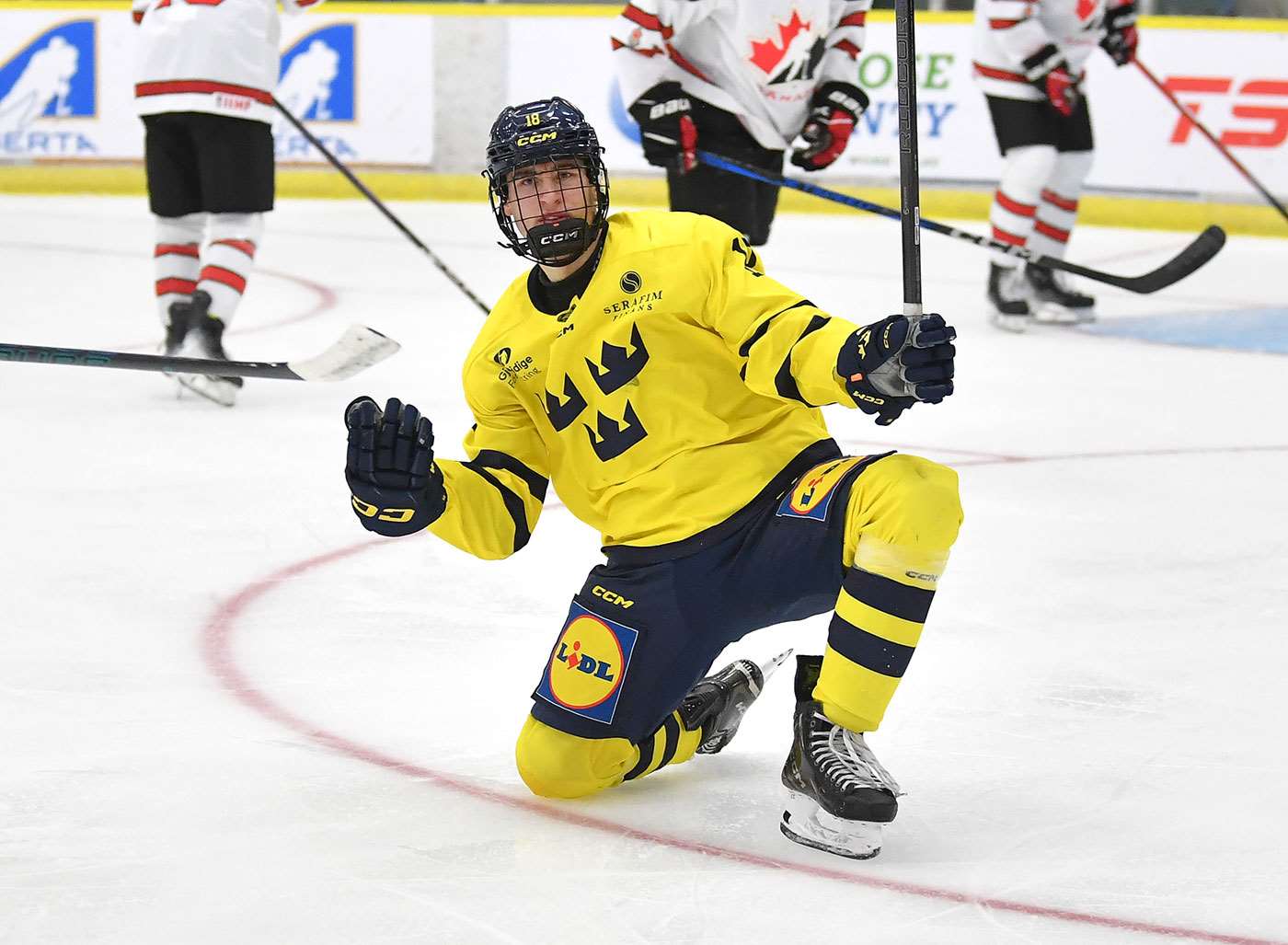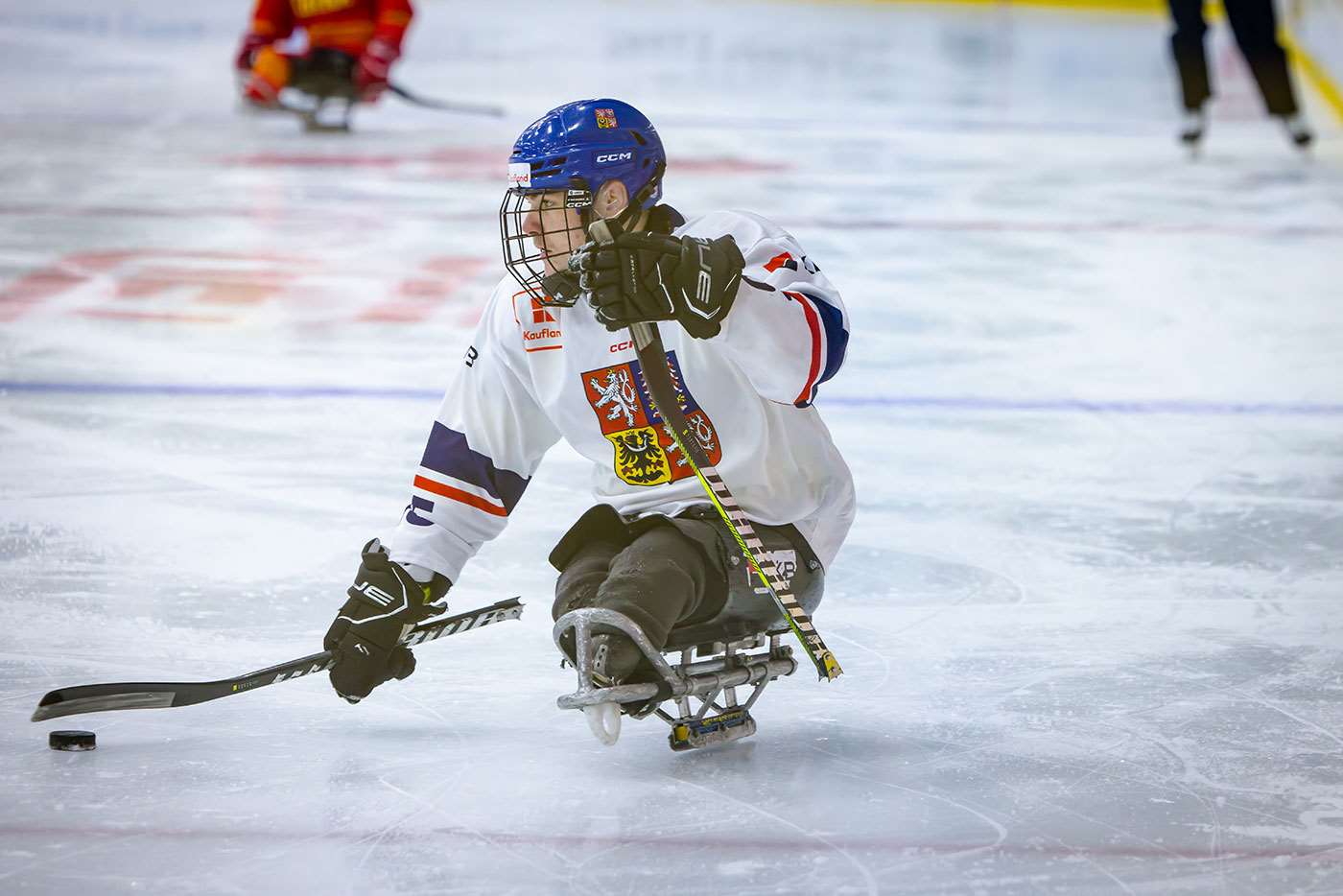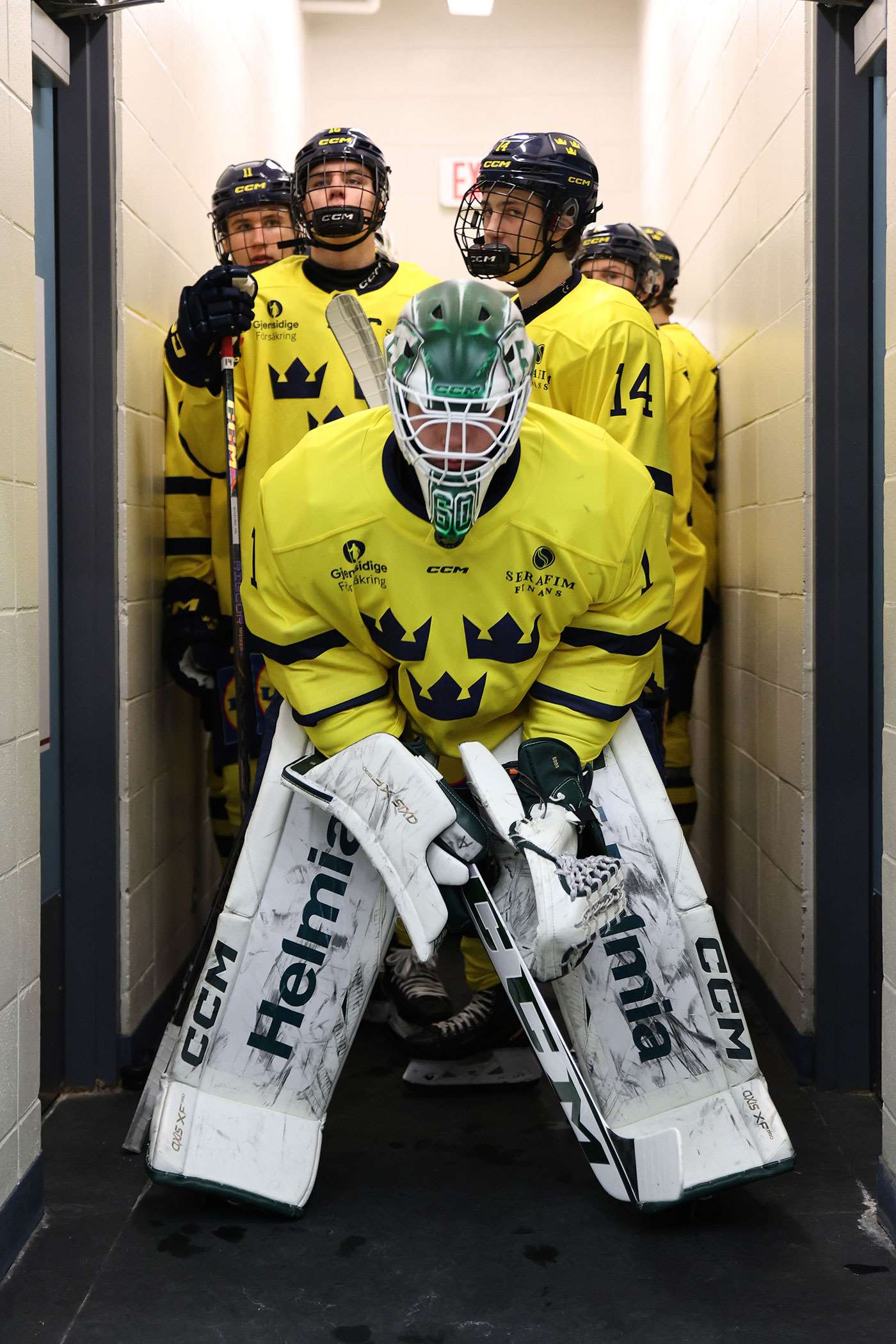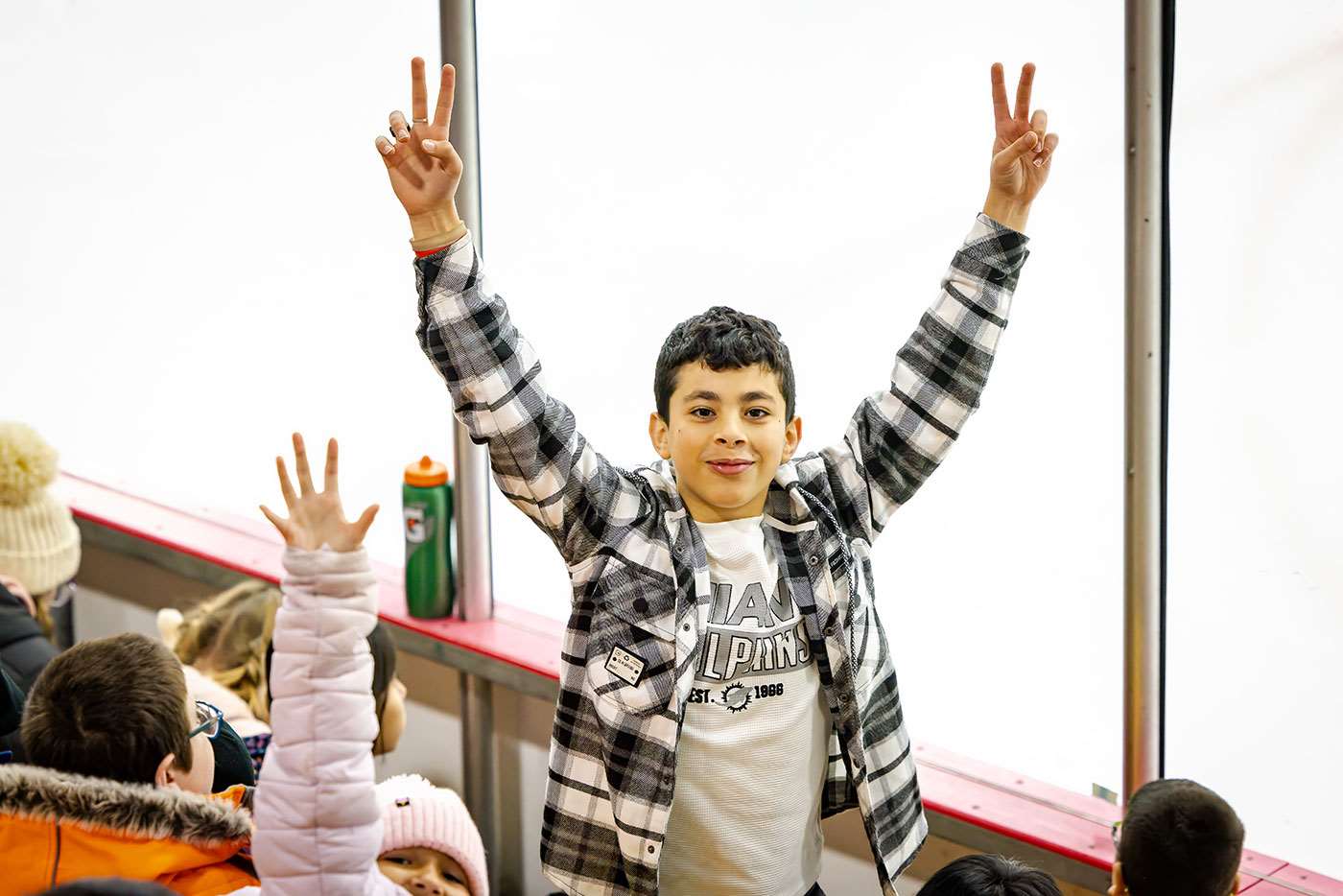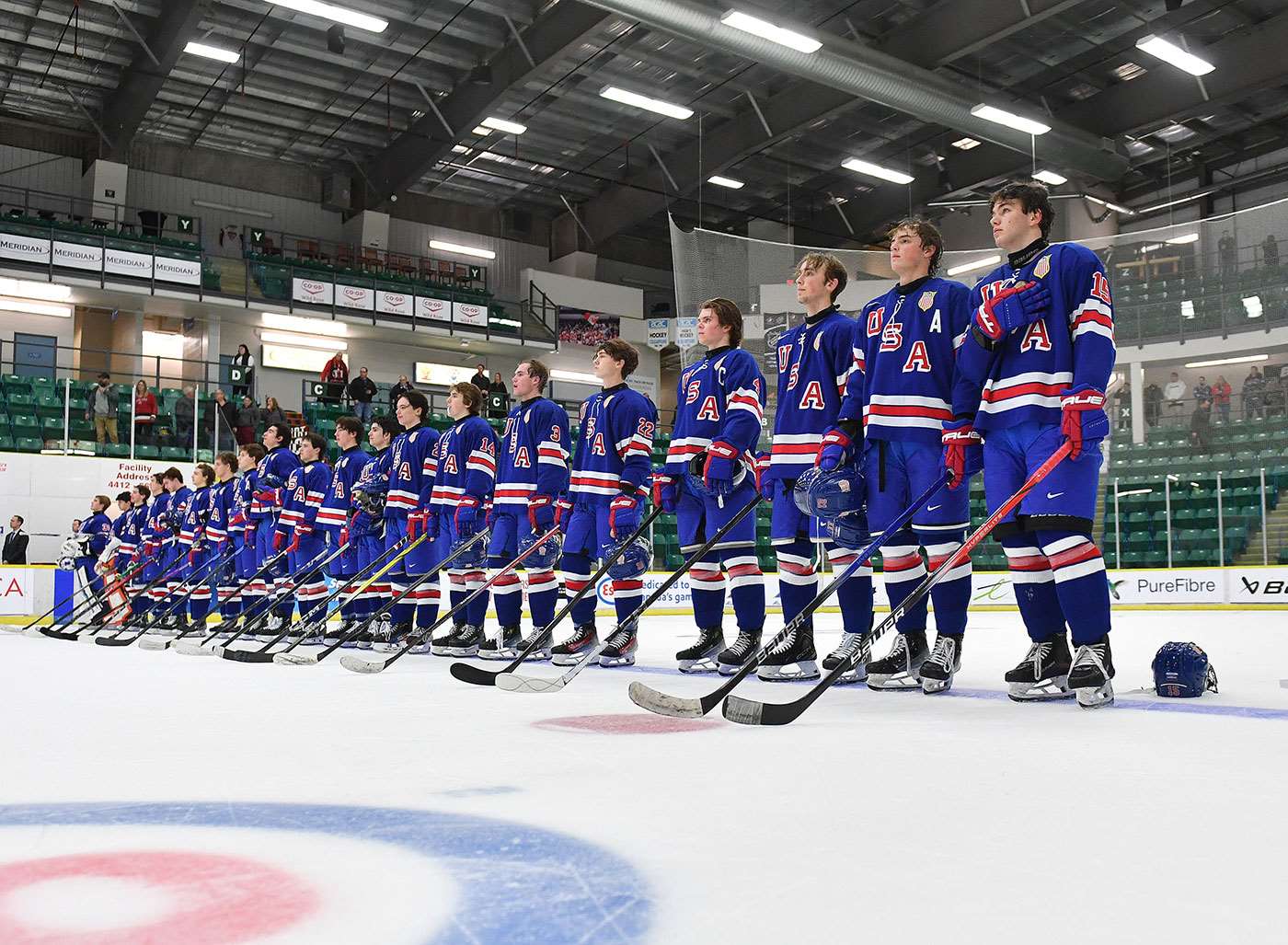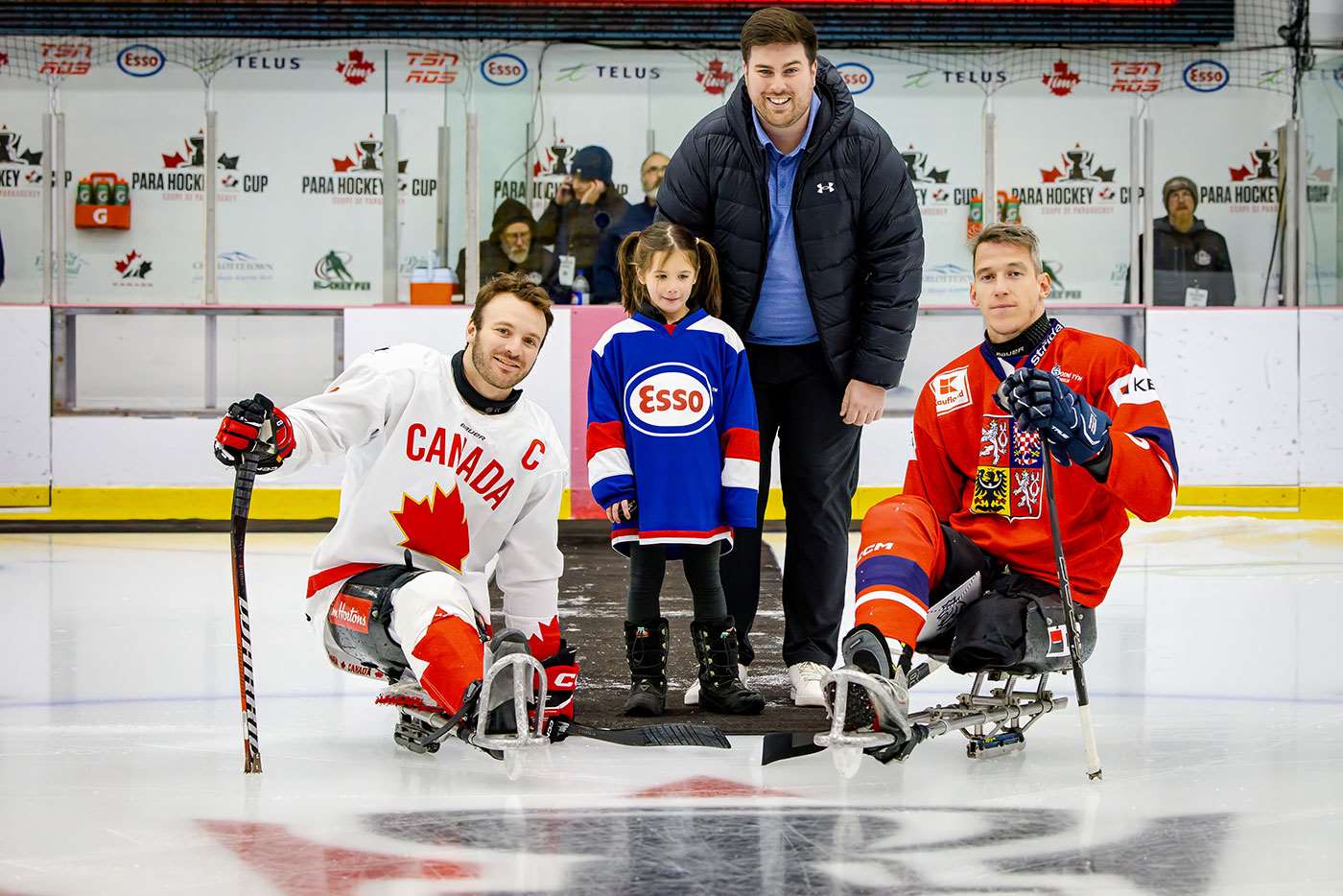
Schedule
Team Canada (Men)
IIHF World Junior Championship | Dec. 26, 2024-Jan. 5, 2025
Spengler Cup | Dec. 26-31, 2024
4 Nations Face-Off | Feb 12-20, 2025
IIHF U18 World Championship | April 23-May 3, 2025
IIHF World Championship | May 9-25, 2025
U17 World Challenge | Nov. 3-9, 2024
Hlinka Gretzky Cup | Aug. 5-10, 2024
Junior A World Challenge | Dec. 9-15, 2024
National Junior Team vs. USPORTS | Dec 12-13, 2024
Search
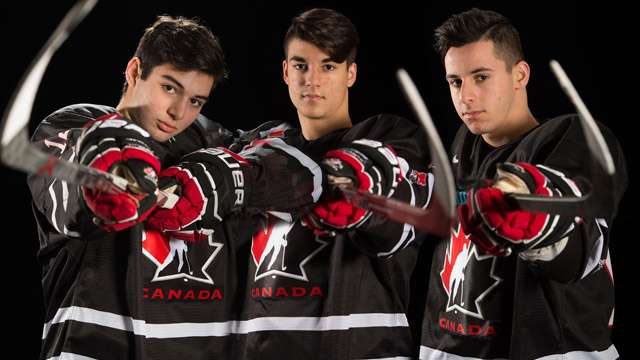
Playing with pressure
Three No. 1 overall CHL draft picks – with very different stories – come together with Canada Black at the World Under-17 Hockey Challenge

In hockey, a prospect’s road to NHL draft day is like going through car inspection. Except rather than lasting an hour, it lasts four or five years.
During this process, hockey’s top prospects have every aspect of how they play microanalyzed by the sport’s leading experts, as well as their physiques, mentalities and overall off-ice demeanours.
“Being watched shouldn’t be hard,” said Stelio Mattheos, the Brandon Wheat Kings forward who was drafted first overall in the 2014 WHL Bantam Draft, and who will be playing for Canada Black at the World Under-17 Hockey Challenge in Dawson Creek and Fort St. John, B.C.
“So I don’t think it’s really hard. I feel like I shouldn’t have to change anything. You just have to work your hardest, be confident and be the best player you can be. You learn to only worry about the things you can control.”
For the 66 players chosen to play for the three Canadian teams – Black, Red and White – at the tournament, the test is to block out the pressure of realizing that they’re going to be performing in one of the most scrutinized events of their 2015-16 seasons. This challenge is amplified for Mattheos and teammates David Levin and Joseph Veleno, the two other players who hold the mantle of being taken first overall in a CHL draft.
Levin, a 16-year-old forward born just north of Tel Aviv, Israel, was drafted first overall by the Ontario Hockey League’s Sudbury Wolves in 2015. Having not arrived in Canada and never stepping foot on the ice – he grew up playing inline hockey – until age 12 in 2012, he has to prove to scouts that he’s every bit as polished as his more practiced teammates and opponents.
Veleno, a 15-year-old forward who is the first 2000-born player to be part of Hockey Canada’s Program of Excellence, went to the Saint John Sea Dogs with the QMJHL’s first pick in 2015 after earning exceptional status. A year younger than almost all of his opponents at the World Under-17 Hockey Challenge, he has to prove he deserved his spot after getting selected ahead of dozens of deserving 16-year-olds with more experience.
“I know I’m getting into the environment where a lot of players are much older than me,” Veleno said. “It’s a big adjustment being brought into that environment. It teaches you that you’ve got to take things more seriously. You can’t be screwing around out there and always have to take what you’re doing seriously.”
As much as these three players’ draft statuses are a mark of their skills, it’s also a mark on their back. They know that as much as they want to prove themselves to scouts, every one of their opponents sees a bullseye on their backs and a chance to prove their own worth by outperforming one of the top picks.
“Everywhere you go, you’re always going to be recognized, as will other players I am playing with,” Veleno said. “Every time you step on the ice, you have to keep working hard. You get drafted in the first round, you’re going to be noticed wherever you go.”
“This has been unbelievable attention,” Levin said. “I was never thinking this would happen to me in my life. I’m trying to stay focused on hockey.”
Levin, of course, is no stranger to pressure. Having grown up in Israel as the son of a Latvian father and Russian mother, he grew up with the international hostilities of the Middle East in his backyard on a daily basis.
And despite being well-versed in the nuances of the game from having meticulously honed his skills in his father’s (inline) hockey school, Levin had never stepped foot on the ice, and only spoke Hebrew and Russian, when he came to live with his aunt and uncle – both Canadian citizens – just outside of Toronto three-and-a-half years ago.
“When I get to Canada, I didn’t know how to speak English,” Levin said, in perfect English. “I didn’t know how to [ice] skate.
“My first few games it was really hard. I’m more comfortable in traffic now. A couple games later you start to get used to it. I’m more comfortable now and I think I’m good to go.”
For Levin, ‘good to go’ has meant leading the charge on a Sudbury Wolves rebuild. He’s one of three Wolves rookies among the top 10 in scoring amongst OHL freshmen, with his eight points (four goals, four assists) in 13 games helping legitimize his placement on the Canada Black roster.
Mattheos and Veleno have been no slouches themselves. Mattheos’ seven points in 12 games have made him a steady contributor for the Wheat Kings, who are tied for the WHL’s second-best record. Veleno’s 10 points in 15 games make him one of the Sea Dogs’ top scorers, despite the fact that he’s three, four and five years younger than some of his teammates.
Although these three top picks share similar skills and a common goal, they’ve been divided by geography their whole lives. That is until this week, when they will skate on the same ice for the first time as Canada Black teammates.
“Individually, I think the best way to make a point to Hockey Canada is to help win the gold medal,” Mattheos said. “From there, the rest should fall into place.
“For all of us.”
For more information: |
- <
- >

















